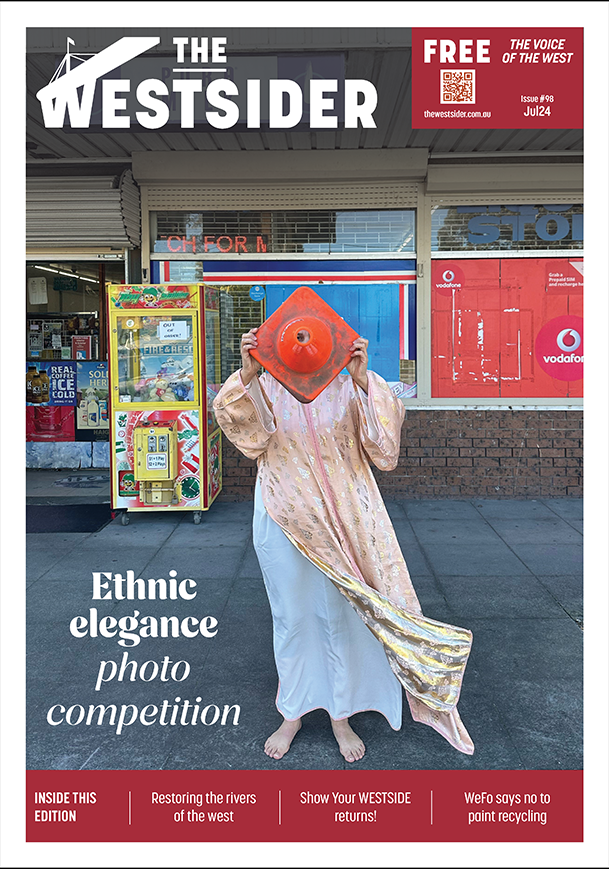By Gerrit Bos
Author and educator Gerrit Bos sat with computer scientist and successful speculative fiction author, Eugen Bacon to discuss the power of storytelling and her journey to becoming an accomplished author.
What inspired you to start writing?
“I’ve always had an active imagination and my father rewarded me with books. He was well travelled and understood early my enchantment with stories. The African tradition is rich with storytelling, songs, proverbs and sayings. For example, rather than warn me with severe words, my grandmother would say: ‘Let me tell you the story of the naughty hyena, and what happened to her hind legs.’ Or: ‘Do you remember how the clever tortoise beat the boastful hare in a race?’
My mother would sing about djinns and the three-headed ogre named Bichwa (it means a giant multiplicity of heads in Swahili) and, big-eyed, I would faithfully gobble up all my dinner, slurping clean the greens from my plate.
I grew up on the works of Chinua Achebe, Margaret Ogola (how-and-why-stories: why the crocodile swims in the water; how the leopard got his spots…), Camara Laye, Ngũgĩ wa Thiong’o… As I got older, I stumbled across Toni Morrison, Michael Ondaatje, Peter Temple, Ray Bradbury, Octavia Butler… writers as mentors, who enthralled me find the power of the word.
My writing journey began slowly, years ago, when I enrolled in a creative writing course with The Writers Bureau, where I won a short story competition with a restorative story on the melancholy of an undiscovered writer, launching her career. It was a retrospective story, writing myself in. Things took a significant turn when I started a non-traditional PhD in creative writing by artefact and exegesis. I loved explorations with language, and the literary, crossing and blending genres, which seemed to draw interest.
What is the greatest challenge you have faced as an African Australian author?
Even as I wrote and published over 200 short stories during that early time, it took forever to place a novel with a publisher. I think the publishing industry is still very white and very male dominated, and networking and associations help.
Hundreds of submissions later, a US publisher, Meerkat Press, saw my manuscript and immediately fell in love with my voice, and my story, Claiming T-Mo, which was the creative artefact of my PhD. That same year, I also placed my de-scholarised dissertation from the doctorate, Writing Speculative Fiction with Macmillan Higher Education in the UK, then Bloomsbury. Suddenly I had a credible portfolio, and more publishers began to notice.
Which of your books are you most proud? Why?
I am a mother who loves all my babies. My books are my babies. Claiming T-Mo and Writing Speculative Fiction will always be the books I am most proud of, as they opened me to the publishing industry. But I also have a special affection for The Road to Woop Woop & Other Stories, which was my short story collection debut, and the showcasing of my hybridity, where I could write as African, as Australian, a sum of many.
Danged Black Thing, my major Australian debut by Transit Lounge Publishing, was well received by critics, including major newspapers. Mage of Fools also by Meerkat Press is another book I’m truly proud of, with its Afrofuturistic dystopian theme and characters, heroing women and black people stories in a rather sombre socialist state.
Chasing Whispers by Raw Dog Screaming Press is another short story collection where I stretch myself into the Afro-irreal. An Earnest Blackness by Anti-Oedipus Press, my debut collection of essays on blackness and otherness, is another book I am particularly fond of.
On a lighter note, which book by another author do you wish you had written?
I wish I’d written all of Toni Morrison’s books. She seduces me, my mentor, who crafted her work in bold writing that spotlighted mood, reoriented prose, courted characterisation. As I wrote in my PhD thesis, she anticipated me, the reader, until I mislaid questioning and instead found curiosity. As I write, I draw a chair next to me for Morrison, as I write about passion, loss, splendour, breakthrough or rage, I benchmark against her and say: ‘Look. Read this with me.’
Finally, is there anything you feel compelled to tell aspiring African Australian authors?
The path to publication is not easy, and there will be editors who’ll deter you all the way, or try to give you language to commercialise your text, divorcing it from your intrinsic voice. But there will also be mentors, enablers—take note of them. Be true to yourself, to your characters, to your tales. There’s a growing market to hero black people stories, to reconnect with your roots.
For years, I grappled with matters of identity, until I discovered that writing black speculative fiction is like coming out of the closet. It’s a recognition that I’m Australian and African, and it’s okay—the two are not mutually exclusive. I am many, betwixt, a sum of cultures. I am the self and ‘other’, a story of inhabitation, a multiple embodiment and my multiplicities render themselves in cross-genre writing. Write first for yourself.
Writing communities and organisations like Writers Victoria or Writing NSW will tool you with useful resources along the way. Network in writing events and conferences—this is how I engage with publishers, editors, fellow authors, and supportive readers.
More information about Eugen Bacon’s works can be found at: eugenbacon.com, or follow her on Twitter: @EugenBacon

